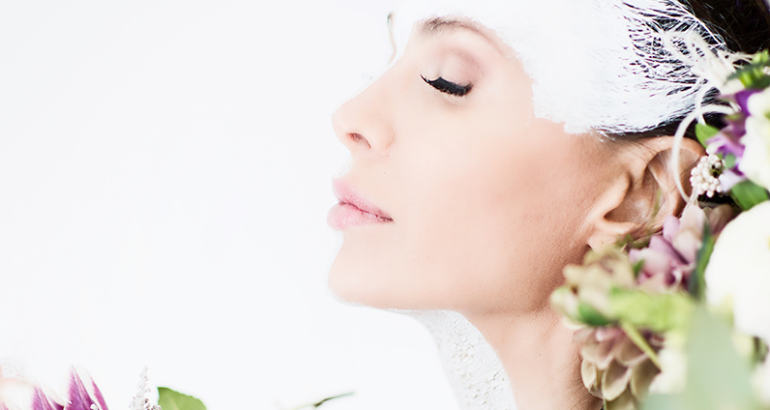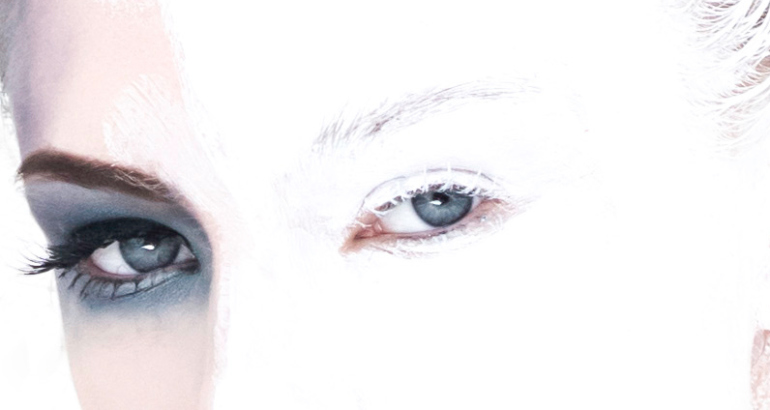Pregnancy and the skin: the good, the bad, and the no-no’s
Written By Dr. Marisa Heyns MBChB (UCT), MSc Aesthetic Medicine and Therapeutics
“Ah, you look radiant. What a beautiful pregnancy glow you have.” I am sure those of you who are pregnant or thinking about falling pregnant hope to enjoy the so-called skin benefits of pregnancy. But apart from those lucky few who truly glow and grow rapunzel status hair, many women suffer a great deal with a variety of skincare concerns. In this blog, I will be unpacking some of the common skincare concerns ladies have during their pregnancies as well as providing some insight into choosing the appropriate skin care products and treatments that are available to you during this time.
The mask of pregnancy; Chloasma
Chloasma or Hyperpigmentation during pregnancy– we know this as the “mask of pregnancy”. Your skin contains various receptors for estrogen and progesterone. When these hormones are in a happy balance they are vital in ensuring that we make good quality collagen, and a nice plump dermis to leave our skins looking and feeling supple wrinkle-free, and smooth.
But the downside of these wonder hormones is that they are also linked to the pigmentation process having the ability to activate melanocytes to make more pigment. During pregnancy, there is also a surge of a hormone called melanocytic stimulating hormone. Yes, the one that activates pigmentation. This formidable trio can wreak havoc on its expecting host. More MSH along with an increase in estrogen leads to more pigment production, and increased progesterone acts as the sideline cheering crowd to egg on the performance of estrogen and MSH.
Now, all we need is to go sunbathe and get exposed to unnecessary excess UV radiation the deal is set – here comes the mask of pregnancy! If you are lucky to have missed the blessing of a telltale imprint on your face, you will notice that freckles, existing pigmentation, and even scars can become darker during this period.
Oily and acne-prone pregnancy skin
As if pigmentation is not enough, a higher amount of circulating androgens along with progesterone can force sebaceous glands to grow and go in overdrive producing more oil, along with thickening of the epidermal layer – your skin is transported back in time to those lovely teenage acne years…
Luckily for most women, these upsets remain mild and manageable, however, in some cases it drives a lot of pregnant ladies into a quiet panic desperately hunting down products and treatments to treat their skins.
What skincare treatments or products are available during pregnancy?
As a doctor, practicing in the field of aesthetics, I am bombarded with this question – what is safe, and what is not safe?
As we all know – there is a lot of no-no’s when it comes to eating certain foods, taking certain medications, and when it comes to certain skincare products. At the end of the day – we certainly do not want to do anything to harm our unborn babies knowingly and unknowingly.
The issue with skincare products is that there are definite no-no’s: such as retinol ( used in anti-aging and acne treatments) and hydroquinone (a depigmenting active). But you find that there is a very large grey zone of maybe’s. Let’s face it -none of us wants to go on the whim of a ‘maybe’ product.
So let me try and explain why certain medications and topicals are forbidden, which ones are maybe ok and of course which ones you can happily slap on.
Pregnancy skincare no-no’s
Retinols, hydroquinones, salicylic acid, and benzoyl peroxides are very effective in treating aging, pigmentation, and acne, respectively. This is because they can penetrate readily and deeply into the skin but have the ability to be absorbed into the blood circulation. Now some studies have shown that a low concentration of these products should theoretically not pose a problem as the chance of systemic absorption would be very low. My answer to this: how much is ‘low’, and furthermore what could be low for one skin can be just too much for another. And for this reason with these arguments, as promising as they may sound, I still feel they should stay on the ‘No, definite No’ list.
Pregnancy skincare maybe’s
Let’s venture into the grey zone. There are a lot of topical ingredients that are considered ok or maybe. The main reason for this is that as Doctors we all abide by the Hippocratic oath of ‘FIRST DO NO HARM’ – meaning: no person in his/her right mind should voluntarily test actives on the skins of pregnant or breastfeeding ladies to see if it will have an adverse reaction on their babies.
In medicine, we have drug lists that are classified according to their safety profiles. The FDA has a Special Category for pregnant and breastfeeding women.
Class A: Drugs are considered safe because they have conducted controlled studies, and in these cases, pregnant women did not show any increased risk to the fetus during pregnancy.
Class B: No evidence of risk to humans; with studies in pregnant women not showing any adverse effect on their unborn babies. However, abnormalities were found among animal studies …. Time to check if you are completely human.
Class C: Things become risky. Any risk cannot be ruled out, meaning there are no studies in pregnant humans or pregnant animals. And so there is a chance.
Class D: Things have turned scary. Studies in unsuspected pregnant women did show a major risk to the fetus. However, if it is deemed necessary and life-saving, one must decide if the benefit would outweigh the risk. FYI to those daredevils: pigmentation and acne treatments are not considered lifesaving!
Class X: An easy one to consider. The answer is No, no, and again no. If you take or apply any of these drugs or actives you will cause harm. Enough said.
So let’s put this all into practice.
What can we safely apply with a clear conscious along with a good night’s rest:
Pregnancy and Pigmentation:
Don’t ditch the sunscreen
First and foremost: protect the skin that is going to be prone to more tanning and pigmentation due to the increased levels of hormones. Yes stay away from sunscreens with high amounts of chemicals and stick to mineral ones that cannot penetrate the skin. You also get mattifying ones that absorb excess oils if you are acne-prone. And make sure you use a product from a reputable company.
Vit C – you will always be ok with this essential brightening anti-oxidant. There are numerous Vit C brightening products available. However, for those who are acne-prone – be careful with some Vit C’s as they can make acne worse …
Vit C, Vit E, and Ferulic Acid preparations: Name dropping here- Mesoestetic AOX ferulic or Skinceuticals ferulic acid are excellent choices to brighten the complexion and protect the skin
Scientifically approved products
Glycolic acid – My take on this: use the smallest amount of actives where possible. Again no product house will give you the green light on the use of their chemical peels or topical actives. Knowing my own skin, I react to glycolic acid quite strongly. To me, it says, my skin, under stress, is not going to like it. It is also the same story about how much is just enough or too much. Having said that, a lot of dermatologists prescribe glycolic acid as part of a brightening skin treatment plan, however, they warn that in some cases it may make pigmentation worse especially for those who have melasma and who get more than their daily dose of sunshine. Glycolic acid is also not a good choice for dry, sensitive skin types.
Lactic acid is not so much of a depigmenting active but has been considered safe. We tend to find it in a lot of our gel cleansers.
Pregnancy and acne-prone skins:
Under normal circumstances, a good dose of retinol and salicylic acid would do the trick in sorting out those nasties. But we know now that they fall under the definite NO-NO list.
One active called azelaic acid that works a charm in treating acne has been popularized in the dermatological field. However, when you look at its rating it falls under class B: meaning no evidence of harm in pregnant women, but issues with pregnant animals. ( again I am the worry pot that would worry about this, despite Science telling me it is ok.)
So what can you use with a clear conscience?
LED light! it is time to venture into the beneficial effects of phototherapy. Blue light has been shown to kill the acne-causing bacteria known as Propionibacterium acnes, or P acnes, which can cause inflammation and resultant acne. The added presence of infrared light also causes the oil glands to shrink in size. The result is less oil in the skin and fewer bacteria, leading to the resolution of acne in the treated areas. And it is 100% safe!
Pregnancy and dry skin
Here you can apply moisturizing actives to your heart’s content. Hyaluronic acid serums (my favorite HA densimatrix from Mesoestetic) not only are hydrating but also act as healing and repairing agents. Nourishing peptides are also a great go-to. Anything that will soothe and calm the skin is ok. Be careful of essential oils. They tend not to be tested at all and so from a scientific point of view, we are treading in the dark. Do your homework and ask a reputable aromatherapist to guide you in choosing the correct oil. My take is that unfortunately, some essential oils are photosensitizing, meaning that you can potentially develop hyperpigmentation as a result.
Although a lot of data exists to show that superficial chemical peels and even IPL are considered safe during pregnancy, my question is always: Is it good to compromise and inflame the skin barrier, when we know its second line defense mechanism: pigmentation, is charged and ready to protect by making more pigment? I would stick to hydrating facials and Dermalux LED light treatments in these cases.
In conclusion:
Pregnancy can be a time filled with great expectant bliss, happy thoughts, and glowing skin, but for some, it can be tainted with pigmentation blotches and annoying pimples, and general confusion as to what we can use to manage these conditions. My take-home message is to stick to the ingredients that have been proven to be safe beyond any doubt. Think holistically. Eat, think and live healthily. You would be amazed at what that can do for your skin. And, If you are really stuck come and see one of us to guide you along the safe path of skincare routines during pregnancy.



